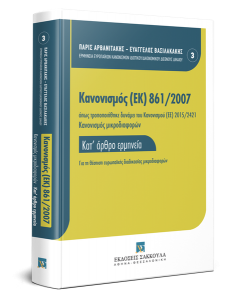Profesor Dr. Francisco Javier Zamora Cabot and Dr. Maria Chiara Marullo (Chair of Private International Law at the Universitat Jaume I de Castellón) have recently published an article on International Sanctions and Human Rights.
Professor Zamora Cabot has kindly provided us with a short introduction to this topic:
The fight for the international protection of human rights is currently being developed on multiple fronts and through a diverse set of instruments and mechanisms. Thus, at the state level we can highlight, for instance, on the one hand, the use of powerful norms of an imperative nature, such as, in the United States, those that deal with serious problems such as torture or human trafficking, along with the emergence of an increasingly important regulation at a comparative level regarding the control of supply chains or the repression of the so-called modern slavery. Also at the state level, it should be noted, on the other hand, the trend that is becoming generalized in favor of facilitating access to justice for victims of human rights violations, being the ambit of the relations of companies with the latter a clear field of choice for it.
For its part, the international community, although it is not living a particularly brilliant time as regards the protection of the aforementioned rights, persists in the application of the body of laws generated in it, especially through the various institutionalized systems, and in the search for new instruments, such as those already adopted or in the process of being adopted in the area of the relations between companies and human rights, key in our days, with the inescapable reference of the role of the United Nations.
In addition, international sanctions have long been playing a relevant role in relation to the two levels we have been managing. The examples are countless, and so is the discussion that often arises, even when they have been conveyed through the international instances. For example, although they are defined and specified with technical accuracy, they often have a negative impact on those sectors of the population they should actually protect.
Trying to minimize these impacts, and opening up new ways in the international protection of human rights, a number of texts have appeared in recent times, with the pioneering impulse of the United States, along with other countries, which, through well-defined sanctions, combine the fight against the corruption with the fight against the serious violations of the rights above mentioned. This is a very timely approach, insofar as corruption and violations are often intimately related, as, for example, the Committee on Economic, Social and Cultural Rights of the United Nations Economic and Social Council emphasized through its General Comment No. 24,E/C.12/GC/24, in the context of business activities, urging States to take action against such corruption, providing them with the appropriate mechanisms and ensuring their independence and sufficient level of resources.
In short, the paradigm of the aforementioned approach would be the Global Magnitski Act of the United States, Public Law 114-328., 130 Stat. 2533, which covers also legal persons and is already resulting in a practice of prominence, and even reflections in other countries at the regulatory level. A norm that deserves an in-depth analysis and follow-up in its application, herald as it is of a new horizon in the struggle for human rights to which we alluded initially, without losing sight of the rigor and caution with which we must act. And this is due to the intrinsic character of international sanctions as instruments of restricted and exceptional application, complementary, but never substitutable in this order, of those already existing and of which there is evidence in these brief reflections.
The article (in Spanish) is available here.

